2021 Scholarship Recipients
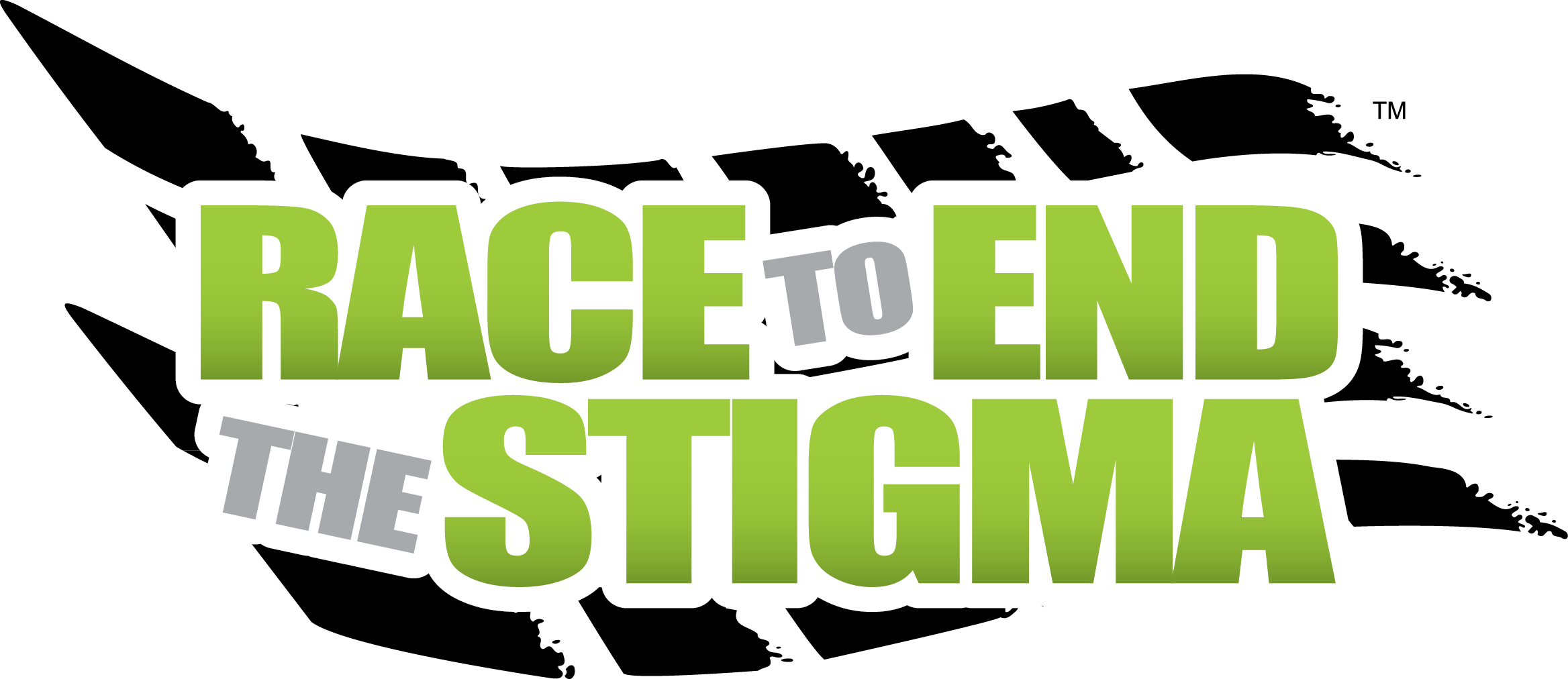
Congratulations to Our 2021 Scholarship Winners!
The Race to End the Stigma Scholarship was created by the Carlos Vieira Foundation to start the conversation about mental health. The Race to End the Stigma Scholarship is granted annually to graduating high school seniors who are interested in mental health awareness or who are willing to share their story about mental health in an effort to end the stigma. We are excited to announce the ten recipients of our Race to End the Stigma Scholarship for the 2020-2021 School Year!
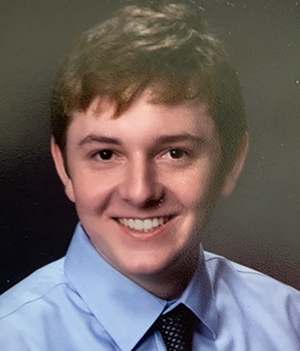
Andres Stidger
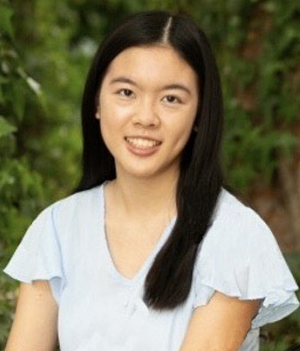
Anna Jian
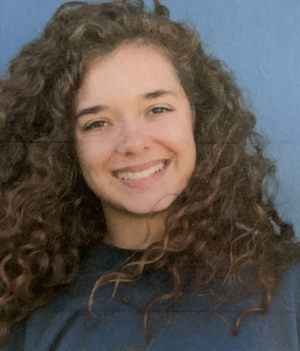
Annie Roe
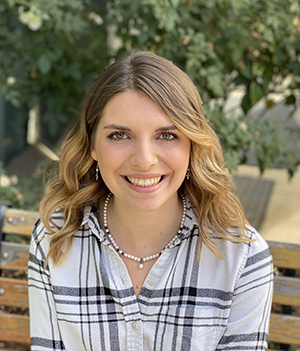
Breanna Smith
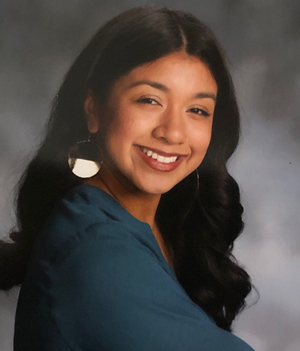
Chloe Mendoza
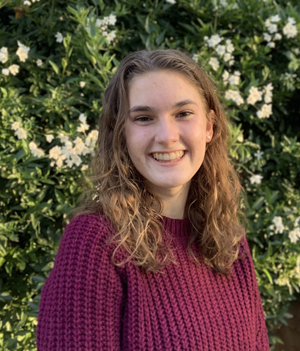
Emma Carney
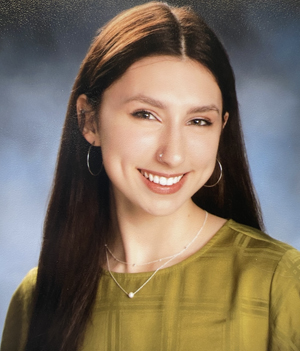
Isabella Porras
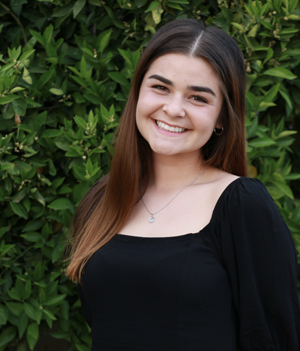
Jordan Rasmussen

Mia Watanabe-Knight
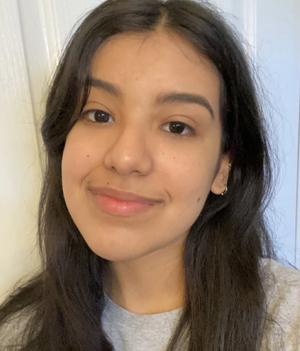
Yaneli Guerra-Hernandez
Scholarship Essays
Click the tabs below to see each of the essays submitted by our scholarship recipients.
*The essays are in no particular order and are being kept anonymous
Help start the conversation about mental health by telling a story of how you or a loved one has been affected by mental health, whether positive or negative, and how it has affected your life. Some examples can include experiencing or overcoming a mental health issue, improving one’s own mental health, etc.
I have never known the security of a stable home environment. Since the 2008 housing crisis, my family and I have relocated 11 times. We moved to cities throughout the Central Valley, but our most substantial move was to the Dominican Republic in 2015.
As a rising seventh grader, I was apprehensive about the move. I was adaptable, but I had never experienced change like this. Waking in a foreign country three thousand miles away from everything familiar was jarring. Anxiety began to flood over me. Routine activities, like going to the grocery store and meeting people, became overwhelming. The country I was in did not feel like home, but then again, had I ever known what home truly feels like?
In this unknown place, I protected myself using the coping mechanisms I had developed years ago. I avoided most social situations and found solace in going to the movie theatre, where I felt no pressure to interact with others. In my mind, this prevented me from becoming too attached to somewhere new, in fear of it being ripped away too soon. But regardless of what I did, anxiety still lingered.
By thirteen I was consumed by this anxious fog. Since I couldn’t find stability, I desperately craved other forms of escape. I discovered some of my favorite bands and became inspired to begin social justice advocacy. I also found a true friend in the Dominican Republic, and we developed a deep connection and became inseparable. I spent countless hours with my siblings and grew closer to them. These moments and relationships became my peace and momentary clarity.
I also began to explore different ways to express my emotions. I started to write, not only about my fears, but about my depression, anxiety, and the people in my community. Poems spilled out of me into my journal, forming a chasm of vulnerability on the page. I didn’t know how much weight my feelings held until I wrote them down.
This release was gratifying, and I yearned for more. In high school, I joined the student newspaper staff to delve deeper into writing and journalism. Alongside this, I continued to pen my experiences of young adulthood, including navigating my identity as a queer woman and grappling with complex emotions. When I shared my poems with my mentors, they encouraged me to submit a piece to the CSU, Fresno’s Young Writers’ Conference. I was awarded and published in a collection of creative writing, titled Spectrum. Later I wrote a piece about anxiety in the newspaper, and peers began reaching out to me, thanking me for my vulnerability and candidness.
I was astounded that my spilled ink was touching so many people, and it gave me a sense of responsibility to seek out others’ truths and give life to raw emotions. Through writing, I became a fierce advocate for mental health awareness and social justice, both on my campus and in my small, conservative town. As a result, I was accepted to attend the ACLU’s Youth Advocacy Institute for two consecutive years, which furthered my passion for advocacy.
Over the years, I have learned to keep myself anchored through my family, friends, and passions. I have formed unbreakable bonds with those closest to me, and although I may always feel somewhat out of place, I know I can overcome anything. Pushing myself to always try and to keep moving forward has become an invaluable part of my overall motivation. While I have never experienced the stability of a childhood home, I’ve come to learn that home isn’t a place. Instead it exists in the memories I have made and inner strength I have developed.
Help start the conversation about mental health by telling a story of how you or a loved one has been affected by mental health, whether positive or negative, and how it has affected your life. Some examples can include experiencing or overcoming a mental health issue, improving one’s own mental health, etc.
Unease is the first step; a tingly sensation that starts in my fingers, crawling up through my arms, finding residence directly on my chest, until eventually enveloping my entire body. My own mind turns on me as I am unable to control my breathing, my balance, and my perception of my surroundings. I feel disassociated from my body, as I’m looking at the world through the eyes of a stranger. I clutch at my chest as I heavily and jaggedly breathe in and out while hot tears find themselves traversing down my cheek. My throat seems to almost close in on itself while I sob uncontrollably. After it’s over I find myself huddled on the floor and it takes several minutes before I can muster the strength to stand up. I’ve just had a panic attack.
I never knew true fear until I was subject to the irrationality of anxiety. It goes far beyond dry mouth before a presentation or a minor shake in my hands after a socratic seminar; debilitating mental health plagued me for months. It all began with one unpredictable trip to the grocery store. I can remember slamming the brakes and yelling in horror as I drew closer to what I thought would be my death. I bit down on my tongue, my guess is to brace myself, leaving behind prominent bloody teeth marks that would remind me of the incident for weeks to come. My knees smashed up against the interior of the car and while my seatbelt had prevented me from flying out of the windshield, the force of the crash caused my body to lunge forward and hit the steering wheel. In a haze of smoke, the other driver ran over to me, apologizing and asking if I was okay. The air that previously occupied my lungs had been pushed out and I began to hyperventilate. I was unable to answer his question.
My accident showed me the unpredictability of life. As a person who feels most secure when in control I felt threatened by the world around me, threatened by the innumerable number of things out of my power. From then on, when making a sharp left turn I would tug at my seatbelt reassuring myself that it was strapped on and to some degree I was safe. I would think ahead to how my actions would affect my future, ranging from what outfit I picked out in the morning to what time I left my house in the morning. Everything in my life was uncertain, the stability that once kept me anchored to reality had vanished. Disassociation became my norm. I felt alienated from my own body, as if I had renounced the ability to control my actions and let someone else take reign. I would look down at my own hands and wonder to who they belonged.
I merely existed yet I was not the person who was living. My emotions were increasingly nulled, until my panic attacks were the only experience I could truly feel.
I reluctantly admitted the deterioration of my mental health when others around me began to notice the shift in my personality. They described me as absent, consumed by creeping sadness. I desperately wanted to be the person I once was, the person who had life in them. I sat down with my school psychologist where we attempted to cement me back into a stable position. Yet I felt as if I would never be free of my own mind, forever burdened and betrayed by my fears. It wasn’t until I allowed myself to be completely vulnerable and found a social outlet that told me I wasn’t alone. Through Friday Night Live, I grounded myself in the present. Being attentive to others' stories, not differing from my own, I felt less alone. Surrounded by a network of friends, I felt accepted for who I was, rather than the constant fixation to fix me. I was me again.
Later down the road, I discovered the gift of meditation. I dove into mindfulness, allowing my consciousness to ground itself in the objects around me, in the feel of the weather, the vibrancy of colors, in what it meant to be present. I expanded my realm of thinking by practicing mental strategies meant to alleviate stress and worry. I began by focusing on my breathing until I reached a point of serenity and turmoil. I took all the pieces of tension and piled them into this figurative ball I pictured in my head. I would then simply let the ball slip away and in opening my eyes, I felt untroubled by my prior thoughts. I was met with a new clarity and an absolute feeling of long sought after peace.
As someone who has experienced mental illness, I wanted to open outlets for struggling students. My goal was to expand awareness and to establish a line of communication with students in need of emotional counseling. I took the time to engage with several students and parents during Friday Night Live chapter town meetings as well as produced a short anti-bullying film to proliferate awareness in my high school. Shame shouldn’t correspond with asking for help and I proudly advocate to end the stigma. I am adamant about reaching out to kids, letting them know that they are not alone, that their sense of brokenness is not permanent.
In September 2018, the climate of my school changed. I remember the cold fog in the morning while moving through classes, and the faces of the people I passed in the hallways. Some signaled fear, sadness, or bewilderment. The fog wasn’t just the weather that day. It was the beginning of a continuous overcast washing over the culture of the student population. That morning, the innocence of our precious, safe school became tainted with grief; we had lost a fellow student in a tragic accident. One life was gone too soon and unfortunately, it was only one of the numerous tragedies that would create a large gap in our spirits.
Over my last two years of high school, four student alumni deaths have taken place. The effect these tragedies have had on all students has evolved since 2018. Ever since the death that year, I’ve frequently heard reflections from classmates and teachers. The stories everyone tells of these beautiful souls made me feel more connected with the students who died. Our school needed a safe space to tell these stories. Grief and its effect on mental health is not widely recognized as well as it should be. I decided if my school wasn’t going to provide enough resources for these memories, I would use my platform to spread them.
Ever since I joined my school newspaper club, I knew how important stories were in inspiring activism. Last year, I joined a local organization in Merced called We’Ced, which moves to change the stigmas surrounding youth by telling uplifting stories about the community. Through this club, I am not only able to collaborate with youth from diverse backgrounds, but am also able to create material to express my ideas. Our group produces a yearly publication. When we decided on the theme of mental health, I immediately thought of the grief my school was feeling and knew that I could speak for change by providing a callout for solutions.
My story for We’Ced’s publication has led me on some difficult paths. I’ve interviewed people closest to the loved ones who have died, as well as students and staff affected by the loss. I’ve also reached out to district members for statistics on handling grief, and school administrators who serve as a support system for mental health. All of these gave me an overwhelming amount of stories, information, and ideas producing one large investigative piece.
There is nothing that abolishes stigma more than the human voice, which is shown through journalism. For me, journalism epitomizes change. The freedoms of speech and press in our country allow us to be heard. When people who feel as though they don’t have a voice can share it through the media, it inspires activism in a community. Stories are the foundation for change because they make people feel a human connection. Mental health isn’t something to be brushed aside. It is prevalent in society and deserves the same awareness as any other catastrophic issue in America.
Mental health has been a much bigger part of my high school life than I thought it would’ve been. Starting high school, I had several factors that contributed to me becoming depressed. I didn’t have any close friends that I could talk to openly. Second, I was struggling with my sexuality and my battle with self acceptance wasn’t an easy one. The third, and maybe most important thing I didn’t know was that I was genetically predisposed to mental health issues. I had no idea that most of the adult members of my blood family were on medication, including both my parents. Depression in my mom’s blood and anxiety in my dad’s meant I was a cocktail of sad chemicals as I hit puberty.
I think it took me so long to figure out what was wrong with me was I didn’t know what depression looked like. I thought that depression was only for people who had gone through traumatic experiences. Sure, I was gay and had to deal with that, but my family accepted me and I even got a loving girlfriend. I had a brief sexual assault as a freshman too, but was that a good enough reason to not have the will to live? I’ve always had high standards for myself and to me these were not good enough reasons to be depressed.
I spent many of my nights crying and texting my girlfriend about how bad I was feeling. She was supportive and no matter how bad it was she didn’t give up on me. Fortunately, one night everything changed. It was one night when I was telling her about my problems tearfully as normal, when I decided something. I decided I was tired of feeling like this and that I was going to tell my school counselor the next day everything. Transparency was something I was deathly afraid of. I decided that I at least owed it to myself to be honest with someone about what was wrong. So I confessed everything to my guidance counselor. And I was honest. And indeed she tried to send me to a crisis center and instructed my mom to take any sharp objects away from me just in case. It was one of the lowest points I have ever felt. I was put in therapy shortly after.
Now, I have been in therapy and on medication for almost two years. And I’m not ashamed of that in the least. To any of my friends that I’ve seen struggling similarly to how I did I recommend therapy or talking to somebody qualified. It’s not the most comfortable subject, but I like to think that if I can change one person’s life by helping their mental health, then it’s worth the awkwardness that these conversations present. I still struggle with bouts of depression and anxiety, but I’m proud of how far I’ve come with my mental health and how I am now better equipped to deal with my emotions.
How are stigmas created in the first place? How do people acquire the notion that mental health isn’t important? How do people think that showing emotion is a weakness? How do people believe that depression is only a “phase”? Stigmas are mutations. Their slimy bodies incubate in a crevice of wrong information and ignorance before they’re born into peoples minds. Simply put, stigmas are a result of misinformation.
I will admit, I have had stigmas on mental health as well. Not long ago, I believed that mental health was an easily treatable aspect of your overall physical health, whether it was a change in mindset or scenery or some counseling. It wasn’t until I sought out information, particularly first person account, that my notions of mental health were corrected.
I run a podcast called We The Students Podcast, where I interview students, staff, and community members about a wide-range of topics from agri-education to local politics to philosophy. It was mid-November, around the time when there was an article circulating about the prominence of mental health issues in public schools. This paper clarified that nearly 80% of all students will undergo some form of mental health problem. I was jarred by the vast majority, and sought to understand why this number was so significant. I took the opportunity to invite a close friend of mine, Wendy, to come onto my podcast and discuss her experience with anxiety disorder. We had an intimate conversation about the inner feelings of anxiety, about panic attacks so severe they suck the air out of you. She described the spontaneity of such attacks, how uncontrollable they are, how sudden, too. A day could be passing by completely normally before a wave of fear would hit like a semi-truck. The more we spoke, the more I sympathized with those who deal with these issues constantly. I was humbled to finally understand what some of my peers undergo each day.
What surprised me, however, was the feedback I got from publishing this episode. Students and teachers messaged me expressing similar shock hearing the first-person view on mental issues. Parents, especially, expressed gratitude for getting a better glimpse at what their children could potentially go through. Their feedback motivated me to continue the saga to elucidate mental health stigmas, to educate my audience with first-person accounts of victims, and to help fight the onslaught of misinformation on mental health.
My journey is that of an audio journalist. To this day I am taking steps to combat mental health stigma by interviewing students of all backgrounds about their experiences with mental health. I have spoken to Joel, who uses optimism as a daily cure to depression, to Vivian, who turns to religion as solace whenever her mind turns dark. I hope these stories will educate students, staff, and parents on the truth behind mental health the same it had done for me.
I remember walking home from my elementary school with my mom, telling me she had news about my little brother. At that time, my family had noticed he was experiencing problems with learning at a normal pace and wouldn’t steadily communicate at the age of three. He was silent and loved to line up his cars. After running tests with specialists, my mother told me that they came to the diagnosis that my little brother had autism. As the news settled, I knew that as his big sister my biggest challenge would be overcoming the barrier of being able to connect with him. My brother’s autism was no problem to me, but learning to form an emotional connection was one of the hardest things while growing up. My brother, Lukas, didn’t like being touched, was mostly silent and kept to himself for awhile. I tried talking to him and pushing him outside like any other average kid however he wasn’t interested and continued to stay inside. It wasn’t until I visited his day care that I realized he learned his habits through songs and cartoons. Now instead of trying to push lengthy questions and conversations, I learned to start from the very beginning.
I began to sing nursery rhymes and basic songs such as the abc’s and counting numbers to connect with him. He began to open up a lot more when I wasn’t forcing him to do things he didn’t like and settled to his level of comfort. I did however encourage him to learn through songs and rhyme and went out of my way to remember which episodes of Mickey Mouse he liked, so that I can explain the lessons learned at the end of each episode. Now about ten years later, Lukas lets me hug and hold his hand. He loves to talk about his favorite movies or the new lego set he’s building. Our bond is so strong that he defends me when our dad tries to jokingly pick on me saying, ”No, not nana! She’s my big sister.” Hearing those words, I knew that I had overcome that barrier and fear that I wouldn’t be able to connect with him. Due to Lukas’s autism I learned to become his biggest advocate and he has taught me to grow up faster in order to understand that those with autism shouldn’t be treated any differently. They just need the extra love and care to connect with them. Lukas has had the biggest impact on my life. I would never call it negative because the words “big sister” remind me that I’m the light he looks up to while he’s the light that glows in my heart. Everything regarding Lukas has been nothing but positive and I would never change that.
Help start the conversation about mental health by telling a story of how you or a loved one has been affected by mental health, whether positive or negative, and how it has affected your life. My heart was beating in my chest, I could feel my legs shaking below me. Sweat was beginning to run down my face, but I hardly noticed. All I could focus on were the thoughts that were racing through my head. Suddenly, the person in front of me moved out of the way, and I stepped forward. Trembling, I looked up to see a man staring at me. I gulped, then recited the order I had been rehearsing for the last 5 minutes. The McDonald’s employee lazily wrote down my order, took my money and handed me a receipt. I stepped out of the line and made my way to a booth, relief pouring over me. It sounds ridiculous-how could someone struggle with something as simple as placing an order at McDonald’s? But that was just one of the many scenarios where my anxiety took control of me.
I have been shy ever since I was a preschooler. During any kinds of performances or skits, I would often raise my shirt up to hide my face or else duck behind a taller kid in the hopes that no one would notice me. But preschool me could not possibly have known that this shyness was the tip of a much bigger and more serious iceberg. Around the beginning of high school, things started to really hit me. High school is usually a time for teens to figure out who they want to be and to form new, meaningful relationships. But that is certainly not what it felt like to me. Due to my anxiety, I was cut off from any relationships at school. I had no friends. Some people might be tempted to laugh at the notion that a high school boy could not make friends, but there was absolutely nothing funny about it. Lacking the emotional connection that friends provide leads to dark and lonely places.
I made my way through high school as best as I could, managing to keep my grades up but still feeling lonely and incredibly unhappy. By junior year I knew that I should reach out to someone, anyone, for help. There were mental health assemblies at school where the teachers made it quite clear that struggling with mental health is nothing to be ashamed of. They encouraged students to reach out to the counseling department if they needed someone to talk to. They were right of course, but at the time I brushed them off. I was worried that if I confessed to anyone how I was feeling they would look at me differently, perhaps as if I was weak or attention-seeking. Again, this was not the case. No one who struggles with mental health is weak. Nevertheless, admitting that you are struggling is an extremely daunting task-but is the first step to improvement.
Once I realized this, I made it my goal to confess to my parents how I was feeling so that I could get the necessary help. Should be easy, right? All I had to do was have a quick conversation and I’d be on my way. Any time I was alone with my mom or dad I knew it was an opportune moment to reach out to them. But I was too scared, too worried of what might happen if they thought I was just being silly. Would they ever look at me the same again? I remember one occasion in particular when my mom was leaving the house and she said, casually, “I’ll be back in a bit, I’m heading to a therapy session.” At that moment, the topic of mental health was just thrown so casually into the air that I was amazed. How could someone possibly be so open about their own mental health? It was absurd. But this openness sparked something within me.
At that point I knew that I could delay the inevitable conversation no longer. There were no more excuses I could make. I approached my mom one evening and steeled myself to ask the unthinkable-to ask for help. I nervously stammered, “Would it be possible to, like, get a therapist or something-maybe?” I braced myself for the answer, feeling more anxious than I had ever been in my life. She did not downplay my concerns. She agreed and immediately, with my dad, began taking steps to help me, setting me up with a therapist and scheduling appointments to make sure
I received the best support possible. This started a streak of self-improvement that led to me being more physically and mentally healthy than I had ever been before. There is no doubt that I still struggle with it even today, but seeking help and talking about my mental health rather than ignoring it and shoving it away has changed me. Sure, I might still be anxious when I place my order at McDonald’s-but I do it knowing that I am safe and secure, and that the worst possible thing that could happen is me fumbling over my order.
I wish everyone could get the help that I got, that every person had a family as loving and supportive as mine. But that is not the case. Some people may go their entire lives pretending they don’t have mental health struggles out of shame or guilt. When we start realizing that there is no shame at all, we can take the steps to improve. We are not weak because of anxiety, depression, or anything else-but we are strong if we can conquer them.
Do you plan to major in or seek a career in a subject related to the mental health field? If so, please share your plan, goals, and reasoning.
Health and well-being have been a passion of mine for several years now, and have grown exponentially as I’ve studied them in depth more recently and dreamt about how I can help others improve their overall health once I graduate. I’ve always been fascinated by the strong connection between physical and mental health, and how markedly they affect each other.
I believe health is the root the rest of life stems from. The state of one’s health and wellbeing determines the quality of their life, and what they derive from it. To fully experience all life offers, good psychological health is a necessity. However, this goes much deeper than just caring for mental health.
Mental health and physical health are interdependent. Although the mind and body are open distinguished as separate, they greatly rely on each other. Caring for our physical health can greatly improve mental health, as good mental health positively affects physical health. When both sides of health are in balance, it creates a cycle, which leads the way to optimal holistic health.
This has become especially evident to me through my observations of unusual events in my life.
After the deadly Camp Fire, which burned our neighboring town of Paradise, California, our entire community faced a long, hard recovery process. My grandparents were forced to evacuate and stayed with us, while several of my friends’ homes were turned to ash. We all had to adapt to completely new conditions. I watched how this huge loss created such severe stress and anxiety in those around me. Even for my family, whose home was spared, we struggled to cope as we helped our friends adjust after losing everything. When added to poor air quality and no sunlight from the ash-filled sky, forcing our community to stay indoors, everyone’s health took a toll. I experienced first-hand how trauma created a sharp decline in mental health, which also diminished physical health and caused an even greater struggle as we all recovered.
Shortly after this, the Covid-19 pandemic again turned the world completely upside down. This unprecedented obstacle caused so many to completely lose motivation, even myself, for a while. To overcome, I kept myself very active. I started consistently running, exercising, and hiking. I found any way I could safely get outside my house where I felt stuck, and encouraged others to do the same. Maintaining my physical health greatly improved my mental health, which motivated me to work toward a better future, although it appeared blurry and uncertain at the time. I experienced how dangerously poor mental health and lack of motivation affects people, and how staying physically active counteracts this. Personally, caring for myself motivated me to continue learning, maintain my grades, stay enrolled in difficult classes, and keep up with my activities despite sudden changes and challenges. Tackling obstacles also made me feel more strong and confident and greatly improved my self-esteem as I realized how much I was capable of.
I first discovered the astonishing impact of outdoor adventure on mental and physical health through all the adventures I’ve embarked on over the years, such as backpacking. I’ve always felt most alive when I’m in nature. I feel strongest when I challenge myself and overcome obstacles and weaknesses. As my passion has grown, I’ve learned how time spent outside greatly increases overall health. I believe nature is essential for optimal physical and mental health, and that nurturing these offers life to the fullest.
I’ve learned a lot from studying Maslow’s hierarchy of needs, on which most of my thoughts on targeting mental health are based. Maslow taught that to reach our full health potential, which he calls self-actualization, we first must meet our basic needs and psychological needs. When people first properly care for their physical health, as well as their relationships and providing for themselves, they have the ability to grow and flourish in their goals and dreams.
Achieving this state of psychological well-being is not simple, or easy by any means. The only way to become stronger mentally is through overcoming challenges and obstacles. At an adventure camp, I was taught that to reach a state of thriving and flourishing, or the “growth zone”, one must first endure the “groan zone”. This zone is created by uncomfortable, challenging situations, but once one struggles through, they will realize what they are capable of, which increases confidence and allows them to thrive. This concept has allowed me to see obstacles positively, since they have helped me grow, and I desire to use this as I help others overcome mental challenges.
In college, I plan to major in kinesiology to better understand the physical health side and the crucial role of exercise. I also want to minor in psychology to gain more knowledge about the mental health side. From there, I plan to earn my masters in Marriage and Family
Therapy, with a long-term goal of using adventure based therapy to help others care for their mental and physical health simultaneously. Most of all, I want to showcase my love of outdoor adventure and nature, and use time spent in the outdoors as a form of therapy for others. My dream is to build a holistic health-centered career using preventative and therapeutic ways to help people recognize their full health, and ultimately life, potential.
Mental Health is and will continue to be a primary contributor to how I live my life. It is present within the way I function, move, and breathe. There are days where my ''demons” will be more prevalent within my life than ever, and on these days, I have to zone in on why I am here, what my purpose is and who I am fulfilling my life for. But oftentimes I am told: “Smell the flowers and blow out the candle." I learned that I would eventually have to face the demons that haunted me every day. If I were to forcefully dodge the anxiety I faced in hopes that it did not recur, I wouldn't face my demons with courage, dignity, and strength but with weakness, vulnerability, and fragileness. My mental stability immensely affected my academic career. I couldn't talk to anyone about the self-inflicting thoughts I had. It ultimately prevented me from focusing on being successful because of my fear of failure.
I am raised within a household where expressing your emotions was irregular. The environment consists of toxic masculinity because my family is controlled by my father. I normalized the feeling of anxiety, which resulted in a spiraling feeling of doom and being constantly fearful of the future and the present. Eventually, I confided in others when discussing my difficulties regarding mental health, which had caught up to me physically. Each of these beautiful people began to help me fight the mental illnesses I continue to fight today. I have grown to understand my mental health but have yet to learn how to control it.
Social Media can be seen to some as an epidemic that can ultimately take over the life of an individual and cause them to be in a constant state of comparison due to the seclusion of only joyful moment's people share within their lives. My perception of social media ultimately helped me understand that I am not alone when it comes to mental illnesses, this ultimately led me to become more empathetic. My mission is to spread happiness wherever and whoever I interact with to ensure no one feels the pain I did, but also being consciously aware, accepting and openminded of the people around me, for we all have our demons but in various forms. Since my experiences and struggles with my mental illnesses, I made it an obligation that I aid those who have mental illness and learning disabilities while volunteering in the Special Education Department at Farmdale Elementary. l desired them to know that they are not entering a world where they are secluded because of their willingness to be vulnerable and seek help. Any strong individual oftentimes needs it, this is the first step to creating a new world filled with change. I am that change, YOU are that change, WE are that change. I will not stop until mental health is destigmatized for my generation, and future generations to come.
Help start the conversation about mental health by telling a story of how you or a loved one has been affected by mental health, whether positive or negative, and how it has affected your life. Some examples can include experiencing or overcoming a mental health issue, improving one’s own mental health, etc.
If you asked me four years ago what I wanted to achieve in high school, I would have said “straight A’s and a great SAT score,” not “55% on my first chemistry test.” As the youngest in the family, I always idolized my sisters, who were my perception of the ideal daughter. When teachers accidentally called me my sisters’ names or recognized my last name, I felt proud. Growing up, I watched them succeed in almost everything they did and figured this was the default. With the mindset that rigorous competitions and classes simply required my attendance, I began expecting results without working for them. As I sat in chemistry with a page full of red ink glaring up at me, I was melodramatic. I spent my time dwelling on what I was lacking instead of taking action.
I perpetually struggled to understand my identity. Comparing myself to my sisters, I felt that I had not achieved what I was “supposed to.” I saw that I needed greater structure and a different focus in my routines. In my frustration, I turned to cello and slowly realized that the lessons I learned in music were applicable to other aspects of my life. I solidified the structure of my studying similarly to my practicing for statewide music competitions. When practicing cello, I always set smaller goals for each session ranging from mastering the technical aspects of a passage or improving musicality. I translated this to my studies by setting similar objectives and established discipline in achieving the specific goals I had set. As principal cellist and orchestra president, I created detailed orchestra agendas and notes. I used this personal system of note-taking to also benefit my study habits. Directing fundraisers and collaborating with fellow musicians allowed me to view different perspectives, eventually revealing to me that my mindset needed a change.
I worked to develop more confidence as a returning leader. I guided and mentored other musicians. I built close relationships with them, and they gave me the nickname “Cello Mom.” When our orchestra travelled, I bonded with younger musicians over delicious Japanese street food and frigid Santa Cruz weather. When we were back home, the same musicians started reaching out to me for advice. When two sisters joined our orchestra from Korea and had trouble fitting in, I reached out to them and even though we communicated at first with head nods and yes or no questions, they are now among my closest friends. Once the younger stand partner who never knew when to start playing, I now find myself on the other side, supporting those beside me.
By the end of junior year, I had led over ten different orchestras locally and across the state, been elected president of my high school orchestra for two consecutive years, and gained self-reliance as I influenced others while balancing my own responsibilities. I found that I love to lead, make people laugh, and build relationships. Cello is more than an extracurricular commitment for me. It will always remind me that I did things differently, but just as well as my sisters. It helped me solidify the studying methods that work best for me and taught me how to mentor and connect with others. Implementing these lessons, I did well in both my chemistry class and on the AP exam. But beyond this, I learned the structure and diligence that improved not only my academics but also other parts of my life.
Challenges in high school pushed me to learn more about myself. I learned how to focus on the process of my goals and not just the results, and adjusted my perspective. Whether it be participating in my university orchestra or reviewing for the next chemistry exam, I know that I can continue to develop these skills I have gained and apply them in college.
I plan to pursue a degree in neuroscience. I have always loved exploring various subjects at once, and the unique, interdisciplinary learning opportunities of this major will allow me to integrate my interests in brain science and music. Playing music has shaped me as an individual, highlighting my strengths and the methods that work best for me in all aspects of my life. Throughout high school, I performed at memory care facilities and educated others about the neuroscience of music. I have always been drawn to the science behind music therapy and am intrigued by the benefits of music on cognitive development and mental health issues.
I am captivated by music, specifically its ability to relieve stress and improve both emotional and physical well-being. Before high school, it had never occurred to me that music could be so much more than scrambled black dots on a page. My first psychology class peaked my interest in neuroscience. Analyzing different aspects of the mind and behavior, I was able to incorporate music into my knowledge of mental health issues. I am currently working with a group of musicians around the world in raising awareness for the positive impacts of music on mental health. Studying neuroscience will allow me to understand the minuscule processes behind this amazing phenomenon. With this knowledge, I will continue spreading the benefits of music for as long as I can.


